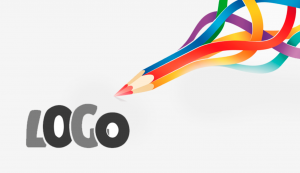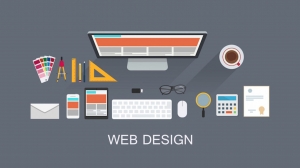Launching an online store is an exciting venture, but it requires careful planning and consideration to ensure its success. It is essential to ask yourself a few important questions before stepping foot in the e-commerce industry. These questions will help you formulate a clear plan of action, steer clear of frequent mistakes, and accomplish your company objectives. The following are some important queries to think about:
- What is My Niche: Identifying a niche is crucial for standing out in the crowded online marketplace. Ask yourself what products or services you are passionate about and knowledgeable in. Research the market to determine if there is demand for your offerings and if the niche is not oversaturated. A well-defined niche will help you target a specific audience and tailor your marketing efforts effectively.
- Who is My Target Audience: Understanding your target audience is essential for creating a successful e-commerce strategy. Consider the demographics, interests, and purchasing behavior of your potential customers. Develop buyer personas to visualize your ideal customers and understand their needs and preferences. This insight will guide your product selection, website design, and marketing campaigns.
- What is My Unique Selling Proposition (USP): Your USP is what sets you apart from competitors and convinces customers to buy from you. Ask yourself what makes your products or services unique. It could be quality, price, customer service, or a unique feature. Clearly defining your USP will help you craft compelling marketing messages and build a strong brand identity.
- What Are My Business Goals: Establish clear, measurable business goals before launching your online store. These goals could include revenue targets, market share, customer acquisition, or brand awareness. Having specific objectives will help you stay focused and measure your progress. It will also guide your decision-making process and resource allocation.
- How Will I Source My Products: Decide whether you will manufacture your products, purchase them from wholesalers, or use drop shipping. Each method has its advantages and challenges. Consider factors such as cost, quality control, inventory management, and supplier reliability. Having a reliable supply chain is crucial for maintaining product availability and customer satisfaction.
- What is My Pricing Strategy: Choose a pricing for your items that will allow you to maintain profitability and competitiveness. Examine the prices of your rivals and take into account your expenditures, such as those related to manufacturing, shipping, and marketing. Your target market and brand positioning should be reflected in your pricing approach. Providing packages, loyalty plans, or discounts might help draw in and keep clients.
- How Will I Handle Shipping and Fulfillment: Efficient shipping and fulfillment are critical for customer satisfaction. Decide whether you will handle fulfillment in-house, outsource to a third-party logistics provider, or use drop shipping. Consider factors such as shipping costs, delivery times, packaging, and return policies. Offering multiple shipping options can enhance the customer experience and reduce cart abandonment.
- What E-commerce Platform Will I Use: Choose an e-commerce platform that suits your business needs and budget. Popular platforms include Shopify, WooCommerce, Magento, and BigCommerce. Evaluate each platform based on features, ease of use, customization options, scalability, and support. Your choice of platform will impact your website's functionality and user experience.
- How Will I Design My Website: Attracting and keeping consumers is mostly dependent on the appearance of your website. Make sure your website is mobile-friendly, aesthetically pleasing, and easy to navigate. A professional web designer might be hired, or you could use editable templates. Make sure your navigation is smooth and easy to use, that pages load quickly, and that your calls to action are obvious.
- How Will I Drive Traffic to My Store: Create a thorough marketing plan to increase visitors to your web store. Utilize a mix of digital marketing channels such as search engine optimization (SEO), social media marketing, pay-per-click (PPC) advertising, email marketing, and content marketing. Analyze which channels are most effective for reaching your target audience and allocate your budget accordingly.
- How Will I Manage Customer Relationships: Securing and preserving a solid client base is essential to long-term profitability. To keep track of consumer interactions and preferences, implement a customer relationship management (CRM) system. Provide top-notch customer support via email, social media, live chat, and other channels. To foster customer loyalty and promote recurring business, personalize your messaging and offer value.
- How Will I Measure Success: Set up key performance indicators (KPIs) to gauge your online store's profitability. Metrics like website traffic, conversion rate, average order value, customer acquisition cost, and customer lifetime value are a few examples of these. Make data-driven decisions and uncover opportunities for improvement by regularly analyzing these indicators.
eCommerce Website Development Packages in India
When launching an online store, selecting the right e-commerce website package is crucial for ensuring that your site meets your business needs and budget. In India, various web development companies offer comprehensive e-commerce website packages that cater to different business sizes and requirements. Here's an overview of what these packages typically include and how to choose the right one for your business.
- Basic E-commerce Website Package: A basic e-commerce website package is suitable for startups or small businesses with a limited budget. These packages usually include essential features to get your online store up and running. Common features of a basic package include:
- Customizable templates
- Basic product catalog management
- Shopping cart functionality
- Payment gateway integration
- Basic SEO setup
- Limited support and maintenance
This package is ideal for businesses just starting and needing a simple, functional online store without too many advanced features.
- Standard E-commerce Website Package: A standard e-commerce website package offers more features and customization options than a basic package. It is suitable for small to medium-sized businesses looking to scale their operations. Features of a standard package may include:
- Advanced product catalog management
- Multiple payment gateway options
- Enhanced SEO and marketing tools
- Mobile responsiveness
- User account management
- Social media integration
- Basic analytics and reporting
- Moderate support and maintenance
This package balances functionality and cost, providing more flexibility and scalability for growing businesses.
- Premium E-commerce Website Package: A premium e-commerce website package is designed for medium to large businesses that require advanced features and a high level of customization. These packages offer comprehensive solutions to manage all aspects of your online store. Features of a premium package often include:
- Custom website design and development
- Advanced product and inventory management
- Multiple payment and shipping options
- Integrated CRM and ERP systems
- Advanced SEO, SEM, and digital marketing tools
- Mobile app integration
- High-level security features
- Detailed analytics and reporting
- Priority support and maintenance
This package is ideal for businesses with a significant online presence requiring robust solutions to handle large traffic and transactions.
How to Choose the Right E-commerce Website Package
- Assess Your Business Needs: Analyze your future growth goals and the demands of your firm today. Consider factors such as the number of products you plan to sell, expected traffic, and the complexity of your operations. Choose a package that can accommodate your business size and scale with your growth.
- Set a Budget: Determine how much you are willing to invest in your e-commerce website. Keep in mind that a higher initial investment can lead to better functionality and user experience, which can drive sales and revenue. Balance your budget with the features and services you need.
- Compare Features and Services: Compare the features and services offered by different e-commerce website packages. Ensure that the package you choose includes essential features such as secure payment gateways, mobile responsiveness, and SEO tools. Additional features such as CRM integration, advanced analytics, and marketing tools can add significant value.
- Consider Support and Maintenance: Reliable support and maintenance are crucial for keeping your online store running smoothly. Check the level of support included in each package, such as response times, availability, and the scope of services. Premium packages often offer priority support, which can be beneficial if you encounter technical issues.
- Read Reviews and Testimonials: Research reviews and testimonials from other businesses that have used the e-commerce website packages you are considering. Customer feedback can provide valuable insights into the reliability, quality, and performance of the packages and the service providers.
- Look for Customization Options: Ensure that the package you choose offers sufficient customization options to tailor your website to your brand and business needs. Customization can enhance the user experience and differentiate your store from competitors.
- Evaluate the Provider's Experience: Choose a provider with experience in developing e-commerce websites for businesses similar to yours. An experienced provider will understand your specific needs and can offer solutions that are tailored to your industry and market.
Conclusion
Launching an online store involves careful planning and consideration of various factors, from defining your niche and target audience to choosing the right e-commerce website package. By asking yourself critical questions and selecting a suitable e-commerce package, you can set a solid foundation for your online business.
Whether you opt for a basic, standard, or premium e-commerce website package, ensure that it aligns with your business needs, budget, and growth plans. By investing in the right features and services, you can create a successful online store that attracts and retains customers, drives sales, and supports your long-term business goals.






